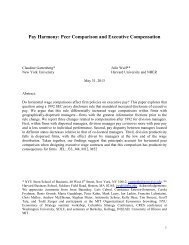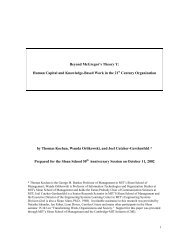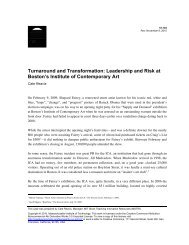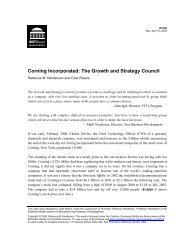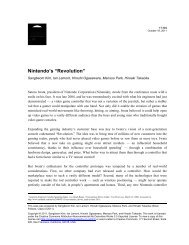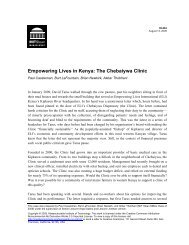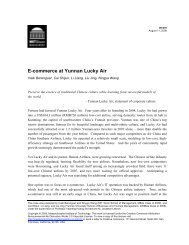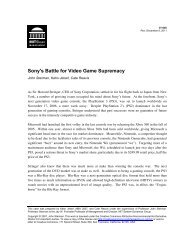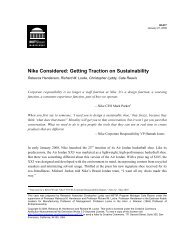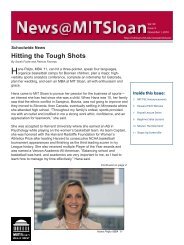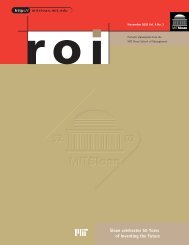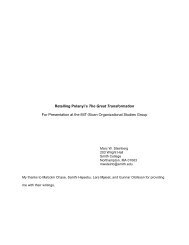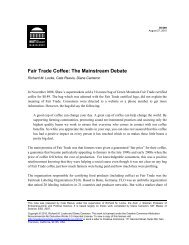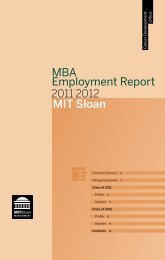Understanding earnings quality - MIT Sloan School of Management
Understanding earnings quality - MIT Sloan School of Management
Understanding earnings quality - MIT Sloan School of Management
You also want an ePaper? Increase the reach of your titles
YUMPU automatically turns print PDFs into web optimized ePapers that Google loves.
debt, are more slowly growing, and face more serious uncertainties. They interpret their evidence as<br />
suggesting that accounting errors are the outcome <strong>of</strong> a weak accounting system (i.e., weak internal<br />
control procedures) rather than opportunistic <strong>earnings</strong> management. The mixed results about the<br />
determinants <strong>of</strong> restatements, however, could be due to selection bias associated with detection <strong>of</strong><br />
the accounting irregularity and the firm’s decision to report it.<br />
Restatements reflect errors that cause investors to revise their beliefs about information<br />
precision associated with the firm’s <strong>earnings</strong> (e.g., Hribar and Jenkins, 2004; Kravet and Shevlin,<br />
2009). We found no studies that provide similar evidence about the effects <strong>of</strong> AAERs on investor<br />
beliefs.<br />
The restatement samples might be useful to examine the complete path from a predicted<br />
determinant (i.e., weak internal control procedures) to a particular type <strong>of</strong> <strong>earnings</strong> <strong>quality</strong> and then<br />
to a predicted consequence because <strong>of</strong> the variation in the types <strong>of</strong> errors reflected in the<br />
restatements. For example, one could address whether the market consequences <strong>of</strong> a misstatement<br />
are different if an internal control weakness rather than an agency problem causes it.<br />
3.3.3 Internal control procedures <strong>quality</strong> as a proxy for <strong>earnings</strong> <strong>quality</strong> 34<br />
Under Section 302 <strong>of</strong> the Sarbanes Oxley Act <strong>of</strong> 2002 (SOX), which became effective on<br />
August 29, 2002, management is required to certify in its 10-Qs and 10-Ks their conclusions about<br />
the effectiveness <strong>of</strong> the firms’ internal control procedures. Section 404 <strong>of</strong> SOX, which became<br />
effective on November 15, 2004 for accelerated filers, requires companies to include management’s<br />
assessment <strong>of</strong> the effectiveness <strong>of</strong> the internal control structure and procedures in its annual report;<br />
34 Studies that examine whether internal control procedures are a determinant <strong>of</strong> another <strong>earnings</strong> <strong>quality</strong> proxy (e.g.,<br />
discretionary accruals or persistence) are discussed in Section 5.2.3.<br />
71



